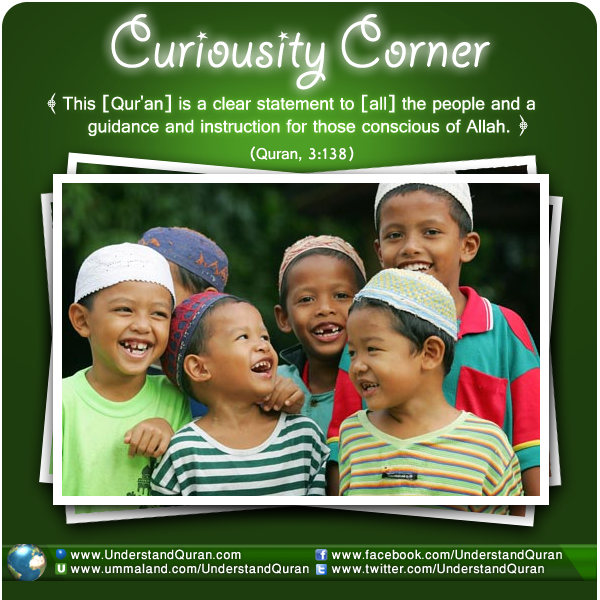Bismillahir Rahmanir Rahim,
Islam is the way of life prescribed by Allah, the creator of nature. It logically follows that Islam is the most environmentally friendly way of life. Let us look at some aspects of this line of thought.
-
Taking care of nature
Allah Azza wa Jall has made this universe in the most perfect way. Everything has a balance, everything has a fixed role to play in the workings of this universe. Even the tiniest of ants has its place. Allah said in the Quran (translation):
And the earth – We have spread it and cast therein firmly set mountains and caused to grow therein [something] of every well-balanced thing. [15:19]
The sun and the moon [move] by precise calculation, and the stars and trees prostrate. And the heaven He raised and imposed the balance, that you not transgress within the balance. [55:5-8]
Also,
It is not allowable for the sun to reach the moon, nor does the night overtake the day, but each, in an orbit, is swimming. [36:38-40]
When Allah says that the sun and the moon, and other creations prostrate to Allah, one of the meanings the scholars give for this is that these creations know their place in the universe and do exactly what they are required to do. Imagine if the sun woke up one morning, and was feeling lazy. So it decided to sleep for another hour and thus rise an hour later than usual. What would happen to the world? Everything would be in chaos! The whole balance of the world would be affected.
Do you not see that to Allah prostrates whoever is in the heavens and whoever is on the earth and the sun, the moon, the stars, the mountains, the trees, the moving creatures and many of the people? [22:18]
What role does the human being play in this balance of nature. He is appointed on this earth as a khalifah. He can enjoy the various resources provided by Allah therein, but he also is responsible for taking care of the balance of nature. When he oversteps, when he is negligent of his role as a khalifah, then he causes disruption in the balance. Everything in the heavens and earth submit to Allah, except humans and jinn. Therefore the only way the balance of nature is disrupted is by our misdeeds. Allah says:
And whatever strikes you of disaster – it is for what your hands have earned; but He pardons much. [42:30]
On the Last Day, the earth will give out its burdens which it had to bear because of human corruption. [99:2] It will also act as a witness against all the misdeeds that human beings committed on it.
We are responsible of maintaining balance on Earth, because Allah has given us superiority over every other creation. And with great power, comes great responsibility.
-
Care of animals
It is prohibited in Islam to kill animals except in need, such as for food or in response to an attack. He curse those who take a living thing as a shooting target. [Tirmidhi]
Even when slaughtering an animal for food, the Prophet told us to do it with ihsan (excellence). It is detestable to sharpen blades in front of it, and to slaughter it with a blunt instrument. We are to do it with mercy. One man told the Prophet that when he slaughters a sheep, he shows it mercy. The Prophet said, ‘And even a sheep, if you show mercy to it, Allah has mercy on you. [al Bukhari]
Even in food we are asked not to be extravagant. A Muslim eats only that which is needed to sustain him. The Prophet said, ‘The believer eats with one intestine and the disbeliever eats with seven intestines.’ [ibn Majah]
Some other sayings of the Prophet’s on mercy towards animals:
‘Whoever shows mercy, even while slaughtering a sparrow, Allah will have mercy on him on the Day of Resurrection.’ [al Bukhari]
‘There is a reward [for serving] everything with a moist liver [i.e. every living thing].’
He also forbade us from staying on a horse or camel’s back longer than necessary.
Such was the teaching of the Prophet in this regard that the Companions maintained this caring nature in their own lives. Umar ibn al Khattab once had a man beaten for making his camel carry more than it could bear.
-
Care of plants
There is none amongst the Muslims who plants a tree or sows seeds, and then a bird, or a person or an animal eats from it, but is regarded as a charitable gift for him. [al Bukhari]
Abu Bakr as Siddiq, when sending an army out to fight, advised its commander, among other things:
‘Do not cut down fruit-bearing trees. Do not destroy an inhabited place. Do not slaughter sheep or camels except for food. Do not burn bees and do not scatter them.’ [Muwatta]
-
Careful use of natural resources
Allah says:
O children of Adam, take your adornment at every masjid, and eat and drink, but be not excessive. Indeed, He likes not those who commit excess. [7:31]
Water is one of the most important natural resources. On the one hand we use excessive amounts of water without caring where it goes, and on the other hand there are people who are dying of thirst.
The Prophet was very careful in this regard. He used to do wudu with very little water.
The Prophet (ﷺ) used to take a bath with a sa’ (of water, 3 litres) and perform ablution with a mudd (of water, about 750 ml) . [Abu Dawud]
NEW! Children’s Course at Understand Quran Academy
Tabassum Mosleh


